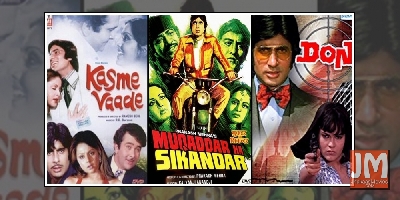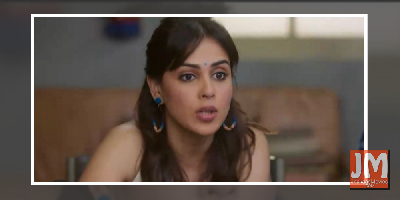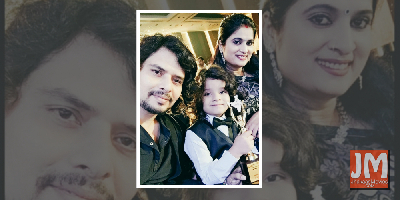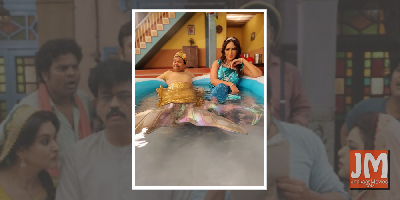 Aan Tiwari honoured with Best Child Actor award for Baal Shiv
Aan Tiwari honoured with Best Child Actor award for Baal Shiv Ghategi rahasymayi ghatnaye!
Ghategi rahasymayi ghatnaye! Amazon Prime Video unveils the 2021 Festive Line-up; brings a heady mix of Indian and International titles on the service
Amazon Prime Video unveils the 2021 Festive Line-up; brings a heady mix of Indian and International titles on the service Release: Music video of, Yeh Haalaath, from Mumbai Diaries 26-11
Release: Music video of, Yeh Haalaath, from Mumbai Diaries 26-11 Bhumi Pednekar feels she shares feel-good value with Akshay Kumar on screen
Bhumi Pednekar feels she shares feel-good value with Akshay Kumar on screen
Decoding Amitabh Bachchan’s Onscreen Romances
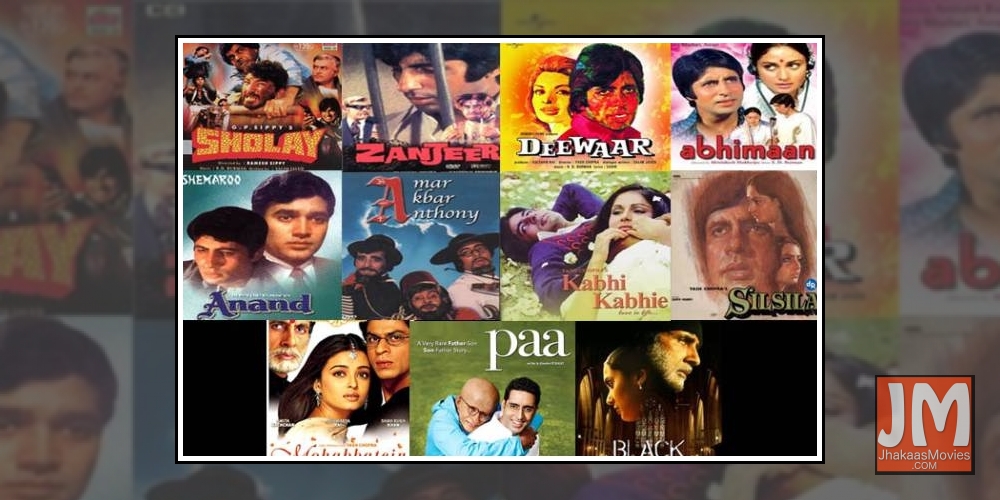
After four years of playing second fiddle, 13 flops and innumerable rejections, Amitabh Bachchan became the mascot for neo-Independent India’s angry generation between the ’70s and the ’80s. Not that his rage isolated him from romance. He only played it real.
His heroines were not prancing bimbettes. They were real women, who partnered his mission, his passion. His sex appeal lay in his translucent steel grey eyes, prisms of intricate emotions. His sensuality lay in his baritone that echoed the tumult of his soul. With Amitabh Bachchan, love discovered a new idiom; relationships ventured into realms of grey and were evocative of the times. No matter how minuscule the role of the heroine in his machismo driven entertainers, his equation with them accorded a quiet dignity and merits a definitive chapter in Hindi cinema.
Relooking at some of his memorable onscreen romances
#Zanjeer (1973), Director: Prakash Mehra : As Vijay, the avenger of injustice meted out by the system as well as that of his childhood trauma, Bachchan’s was a character on the edge. A gentle romance develops between Maya, the chakku chooriwali, and him. Mala yearns for a home and life with him. But Vijay is unable to find consolation in a fairytale future. The scenes between them are few but tender. Especially, when she visits him in jail and later when she urges him on to vent to his angst.
#Abhimaan (1973) Director: Hrishikesh Mukherjee: The romance and redemption of singer Subir (Bachchan) with the rustic Uma (Jaya) was traced through Majrooh Sultanpuri-SD Burman songs - Nadiya kinare, Teri bindiya re, Loote koi mann, Ab toh hai tumse, Piya bina and Tere mere milan... Blossoming intimacy, ego-driven estrangement and a tearful denouement. Abhimaan, still a superhit on satellite, has the power to turn an entire generation nostalgic.
#Mili (1975) Director: Hrishikesh Mukherjee: This was a Hrishida entertainer with hues of tragedy. Mili (Jaya Bachchan) and Shekhar (Bachchan), as neighbours, are first at loggerheads. He can’t bear her childish impudence and she can’t take his standoffish stance. But when her father (Ashok Kumar) and she rush to help an injured Shekhar things begin to thaw between them. Memorable scenes are when Mili chides a drunk Shekhar for throwing a tantrum, when Shekhar bares the trauma of his mother being killed by his father to Mili, when the two watch stars at night and Mili child-like holds his hand. Also touching is the moment when he proposes marriage to an ailing Mili… knowing she’s in a twilight zone. The songs Badi sooni sooni hai and Aaye tum yaad mujhe spelt out his character’s loneliness
#Kabhi Kabhie (1976) Director: Yash Chopra: This was a classic template of unrequited love. Apparently, based on poet/lyricist Sahir Ludhianvi’s real life heartbreak, the film included his verses that were set to tune by Khayyam. The autumnal leaves of Kashmir strewn like scattered dreams matched Pooja’s (Raakhee) devastating beauty. Amit (Bachchan), as the poet, who seeks the world in his muse Pooja and then watches it splinter as she becomes someone else’s bride, was a character destined to lose. While she moves on and he apparently does too (he marries Waheeda Rehman), not for once does he allow the sense of bereavement to abandon him. Bachchan with greying sideburns and a subdued baritone cuts a brooding figure. Most notable is the scene where he meets Pooja at a TV studio for an interview… the years between them but not between his feelings for her… and recites… Tu nahin, tera gham teri justjoo bhi nahin, Guzar rahi hain kuchh iss tarah zindagi.
#Sholay (1975) Director: Ramesh Sippy: One significant track in Sholay is the silent yet eloquent love between hoodlum Jai (Bachchan) and widow Radha (Jaya). Jai riding a buffalo bringing a smile on Radha’s face, he gently nabbing an errant lamb running away from her, she putting off the lamps at night, even as his plaintive notes rekindle the light of love in her… are memorable. Radha letting the garb of convention slip as she sobs watching Jai breathe his last… is haunting as a metaphor of love left chaste and incomplete.

